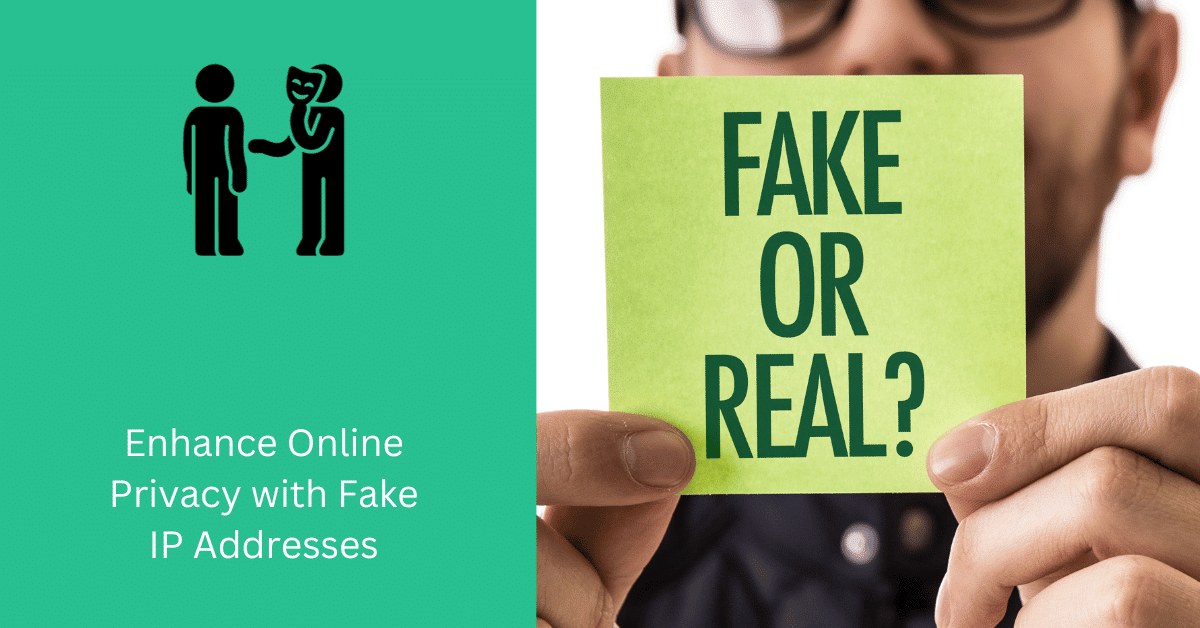
In a world where cybersecurity is a growing concern and the sheer volume of data generated in our daily lives continues to rise, safeguarding your privacy and online anonymity is a natural response. If you have a basic understanding of computer networks, you’re likely aware of how your online activities are tracked through your IP address. The notion of altering your IP address may seem like an attractive solution to keep mega corporations and government entities from accessing your personal information.
This article will delve into the concept of IP addresses, their functionality, the methods to obscure your IP address, and the reasons you might want to do so. If you’re already well-versed in this topic, you can navigate to the sections that interest you most using the table of contents.
Is It Possible to Alter Your IP Address?
You might assume that altering your IP address is as simple as entering random numbers, but, unfortunately, it’s more complex than that. Genuine internet access requires a valid IP address, and there’s no way to fake it. However, there are various methods to mask your IP address, provided you understand how they operate.
Your IP address is a unique set of numbers that distinguishes your device on the internet. Internet Protocol (IP) is the foundation of online communication, allowing networks to differentiate between computers, routers, and websites by using location information encoded in your IP address. These addresses are typically formatted as four numbers separated by periods, with each number ranging from 0 to 255. The allocation of IP addresses is overseen by the Internet Assigned Numbers Authority (IANA).
How IP Addresses Operate
When you connect to the internet, you first establish a connection with a network linked to the internet. For example, if you’re at home, this network is typically your Internet Service Provider (ISP), the same entity that assigns your IP address. Your online activities are routed through their network, reaching you through your IP address. When you’re away from home and accessing the internet from another network, such as a public Wi-Fi hotspot, that network assigns you a temporary IP address.
Revealing the Information in Your IP Address
Your IP address alone can reveal details such as the city, ZIP code, or area code of your ISP. While it doesn’t expose your exact location, it can be combined with your online activities to create a broader picture of your residence, workplace, or educational institution.
Why Hide Your IP Address?
There are various compelling reasons to conceal your IP address:
- Protecting Privacy and Anonymity: While your IP address doesn’t contain confidential data, it can be employed to track your online actions. Some entities interested in tracking your IP address include advertisers, employers, and educational institutions.
- Evasion of Targeted Advertising: Marketers utilize cookies to collect data related to your internet usage, enabling them to tailor ads. Hiding your IP address can help prevent third-party cookies from monitoring your online activity.
- Protection from Employers or Schools: Employers and educational institutions can observe your internet activities when using their networks, potentially restricting or monitoring your access to certain websites.
- Overcoming Geo-Restrictions: Some websites restrict access based on your location due to legal, marketing, licensing, or censorship reasons. A different IP address can bypass such restrictions.
- Web Scraping: Web scraping, the process of extracting unstructured data from websites, requires multiple IP addresses to avoid anti-scraping measures.
- Managing Multiple Social Media Accounts: When handling numerous social media accounts, using multiple IP addresses is essential to prevent bans or restrictions.
- Shopping Bots: Shopping bots are used to purchase limited-edition products, and they require different IP addresses to appear as individual buyers.
How to Conceal Your IP Address Using Proxies
You can disguise your IP address by using proxies, which act as intermediaries between your device and the internet. Proxies allow you to hide your true IP address while using another. Various proxy types are available, including data center, ISP, and residential proxies. Selecting the appropriate proxy type is essential based on your specific needs.
Tips to Avoid Detection When Using a Fake IP Address
To evade detection when using a concealed IP address, consider the following strategies:
- Utilize Elite Proxies: Elite proxies offer the highest level of anonymity by concealing both your actual IP address and the fact that you’re using a proxy.
- Rotate Proxies: Employ a rotating pool of proxies to vary your IP address with each request, mimicking human behavior and reducing the likelihood of being blocked.
- Randomize Activity: Randomize your bot or scraper’s activity to imitate human browsing behavior, including delays and intervals between requests.
- Select the Right IP Address Type: Opt for the most appropriate IP address type for your needs, such as residential IP addresses for appearing as a regular user.
Choosing a Reliable Proxy Provider

When selecting a proxy provider, ensure that they are ethical and trustworthy, as your data and reputation are at stake. Reputable proxy providers like Rayobyte offer a wide range of proxy types and uphold ethical practices.
In summary, while it’s not possible to fake an IP address, there are ways to conceal your actual IP address by using proxy services. Understanding the different proxy types, their features, and the reasons for concealing your IP address is crucial for making informed decisions in your online activities.
Fake IP Address
Faking an IP address or using fake IP addresses can have both legitimate and potentially malicious applications. It’s important to clarify that the term “fake IP address” typically refers to the act of using an IP address other than your real one, but it doesn’t necessarily mean generating a completely fictional IP address. Here’s an overview of what it means to fake IP addresses:
1. Use of Proxy Servers
Proxy servers: These are intermediary servers that can act as intermediaries between your device and the internet. By connecting to a proxy server, your IP address appears to be the IP address of the proxy server rather than your own. This can help hide your real IP address, providing a degree of anonymity.
VPNs (Virtual Private Networks): VPNs route your internet traffic through servers located in different regions or countries, effectively masking your IP address with the IP address of the VPN server. This can help you access geo-restricted content and enhance privacy.
2. Tor Network
The Tor network, also known as The Onion Router, is a system designed to anonymize internet traffic. It routes your data through a series of volunteer-operated servers, making it difficult for anyone to trace your IP address back to you. Tor is often used for enhanced privacy.
3. Dynamic IP Addresses
Many internet service providers (ISPs) assign dynamic IP addresses to users. These IP addresses can change periodically, making it more challenging to track users. Disconnecting and reconnecting to the internet can result in receiving a new IP address.
4. Fake IPs for Security Testing
In cybersecurity and penetration testing, fake IP addresses may be used to simulate and test security vulnerabilities and responses without exposing real systems to potential threats. Tools like Kali Linux offer this capability.
5. Spoofing Techniques
Some attackers may employ IP address spoofing, which involves altering the source IP address in network packets to hide their identity or impersonate other systems. This is often used for malicious purposes and is illegal in many cases.
It’s crucial to understand that while using proxy servers, VPNs, or the Tor network to mask your IP address is a legitimate and common practice for enhancing privacy and accessing geo-restricted content, other methods, like IP address spoofing, are often associated with malicious activities and may be illegal.






Comments (0)
There are no comments here yet, you can be the first!